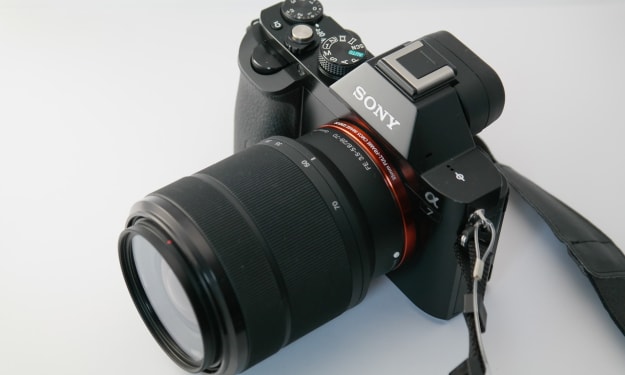
What does shutter speed do? I believe that is a good place to start.
Without flash, shutter speed works as a third of the exposure triangle.

So slower shutter speeds blur motion, so how did I get a still image at 1/25th of a second with a 70mm lens?
Flash!! Ahhhh-Ah!

This might get old quickly
Flash (Gordon) is the way to create a good solid flash. So how does it work? so a Strobe light goes off in 1/10000th of a second. So your shutter speed sort of (sort of) doesn't matter if you use the flash as your main light. Negating the need to light your subject with natural light.
Do you need your shutter speed?

More Flash Gordon... Yes, lots more.
Well, let's explore this a little as the laughter might be premature.
If we look at an image with a very slow shutter speed it will have a lot of movement—OR anything moving will be blurred.

ISO 400, 24mm, f/9, 1/15th
If we look at an image with a very slow shutter speed it will have a lot of movement—OR anything moving will be blurred. You can see the motion blur but the majority of the subject is still (or still enough to hand to a client, which I did and they both absolutely love this photo).
You: If the flash freezes motion why is there a motion blur in the image above?
Well, this leads nicely into what shutter speed and aperture actually do when it comes to flash.
Shutter Speed, Aperture and ISO

Flash!
Let's start with aperture, as it is probably going to be the hardest one to explain, it still controls the depth of field. It also affects how bright your subject is (where the light from the flash falls) and how bright the background is.
Shutter speed doesn't affect the flash (I am not going into flash sync speed here, I am happy to write a different article on that topic).
You: What is the shutter speed affecting?
Well, it is affecting the ambient light. The slower your shutter speed the more ambient light is let in. See the main image of the article the left is at 1/25th of a second the right is with 1/200th.
You: How does this help me?
Well, I would say be creative? But let's go through a method of setting exposure so you can get an idea of what I am going on about.
Let us say that we are out in the afternoon and it is a sunny day. We set our shutter speed with wiggle room either way (like 1/60th is what I normally use) and we get an ambient light meter* reading of f/10. Then we set up our flash (Gordon) and get a light meter reading of f/10. At this point, start shooting and the flash will light your subject with the same power as the sun. Raise your shutter speed to 1/125th and then your subject is brighter than the background by a full stop of light.
A Little Behind the Scenes of a Shoot

ISO 800, 24mm, f/13, 1/10
A little behind the scenes shot where you can see my assistant holding the flash to light the subjects.
Yes, it is 1/10th of a second and still with a 24mm lens handheld. Thank you, Flash Gordon.

TED featuring Flash Gordon, I couldn't help myself.
*Light Meters

This is an image of a very common light meter which is the one I use and it reads the light level... Pretty much. But, I would advise you look into owning one if you want to do flash photography especially with strobes which are often not TTL or are very expensive with TTL. Flashguns with TTL are very cheap but give a different kind of light.
About the Creator
Harrison Galgut
Professional Wedding, Events and Portrait Photographer. Always looking for new experiences and people to meet. Have a look at my work: www.edit6.co.uk
Enjoyed the story? Support the Creator.
Subscribe for free to receive all their stories in your feed. You could also pledge your support or give them a one-off tip, letting them know you appreciate their work.






Comments
There are no comments for this story
Be the first to respond and start the conversation.